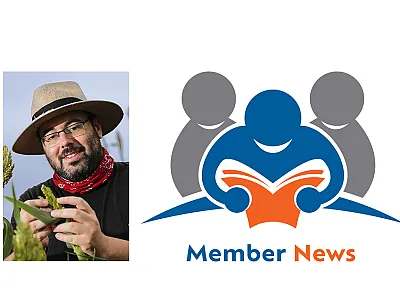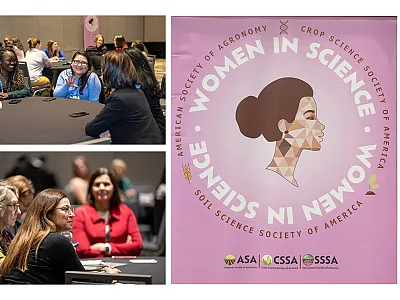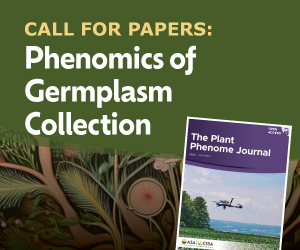2023 Annual Meeting Plenary Speakers Announced
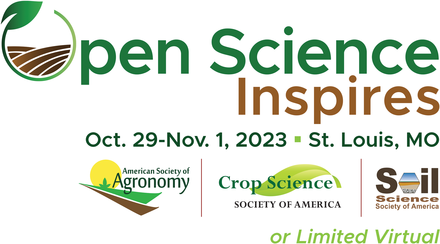
CSSA Plenary/Betty Klepper Endowed Lectureship
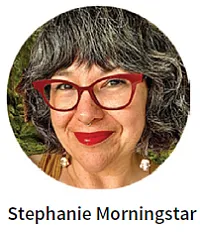
Stephanie Morningstar, Relationships and Reciprocity Co‐Director, Northeast Farmers of Color Land Trust, will present “To Be Regenerative, We Must Be Reparative: Bioremediating the Soil of Relationships Through Reciprocity in Agricultural Practice.”
As elder Lilla Watson once said, “If you have come to help me, you are wasting your time. If you have come because your liberation is bound up with mine, then let us work together.” Colonization and capitalism have had significant negative impacts on soil health, often through the imposition of exploitative land use practices and the prioritization of short‐term profit over long‐term sustainability. Traditional ecological knowledge and practices provide regenerative approaches to managing ecosystems, conserving biodiversity, and mitigating climate change through rotational farming, agroforestry, and controlled burning. This can enhance biodiversity by promoting the growth of diverse crops, maintaining soil health, and creating habitats for wildlife. Achieving meaningful equity in soil science and agriculture requires critically examining the discipline’s history, assumptions, methods, and values and a commitment to incorporating Indigenous and other marginalized perspectives and knowledge systems.
Join Stephanie Morningstar to explore how we repair our relationships with the land and within our social constellations to leverage our collective power in this essential time in the evolving story of the earth.
SSSA Plenary/Nyle C. Brady Frontiers of Soil Science Lectureship
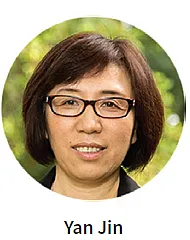
Yan Jin, Edward F. and Elizabeth Goodman Rosenberg Professor of Soil Science, University of Delaware, will present “Colloids Conspiracy: Their Role in Soil and Environmental Processes.”
Soil colloids are particles in the size range of 1 nm to 10 mm that include both inorganic and organic fractions. They have two important properties: (1) they have very small sizes that give rise to large specific surface areas and high reactivity and (2) they can remain in suspension for long periods of time and therefore can potentially travel long distances in subsurface media. These properties are the key parameters controlling colloids’ fate and transport in porous media.
Colloid mobilization and transport play an important role in soil genesis, erosion, and their influence on hydraulic conductivity in relation to irrigation management. Mobile colloids can serve as carriers of strongly sorbing substances and thus play an important role in the transfer of nutrients and pollutants in the environment over short and long distances. In addition, soil organic matter’s stability and transport have been found to be closely related to its ability to complex with soil minerals, suggesting a potentially very important role that soil colloids may play in global carbon cycling and sequestration.
ASA Plenary/E.T. & Vam York Distinguished ASA Lectureship
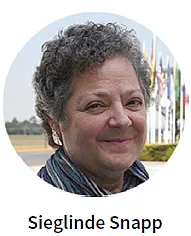
Sieglinde Snapp, Director of Sustainable AgriFood Systems, CIMMYT, will present “Sustainable Agrifood Systems for a Changing World Requires Action‐Driven Science.”
The complexity and uncertainty we face in agriculture and land management is daunting. Science must rise to the occasion to promote inclusive and environmentally sound agrifood systems, with resilience, in a rapidly changing world. Extreme weather, conflict, consumer price spikes, and epidemics highlight the urgent need to use action research, new data analytics, and agrodiversity to buffer capacity and farming systems. Transdisciplinary science is key to sustainable food, farm, and land use. To quote Dr. Norman Borlaug, it takes “venturesome scientists willing to work across disciplines…” The approach matters. Action research supports local solutions to tackle the sustainability challenges of soil health, agricultural diversification, and resilience. Discovery science must be closely linked to action‐drive science to engage stakeholders and address the steep trade‐offs, social‐ecological complexity, and uncertainties involved in making change.
Emerging innovations to be explored in this talk include living labs, agroecology, and open data and open‐source technology that empowers farmers, communities, and scientists to work together.
Learn more and register today at acsmeetings.org.
Text © . The authors. CC BY-NC-ND 4.0. Except where otherwise noted, images are subject to copyright. Any reuse without express permission from the copyright owner is prohibited.




